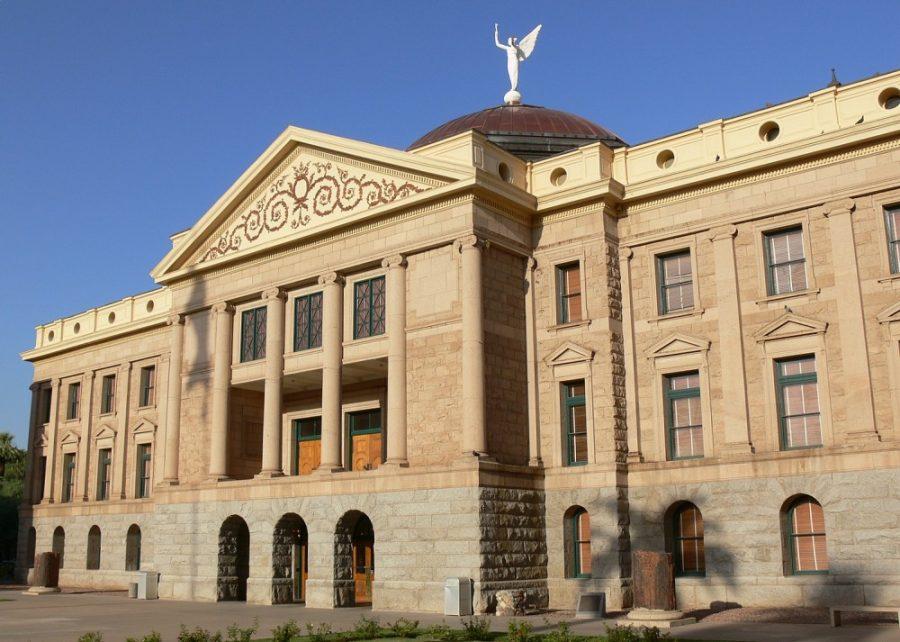A group of friends organize a peaceful protest against the President Trump’s possible dealings with Russia. During the protest, out of no fault of the planners, some of the participants become agitated and a riot breaks out. The planners are arrested, and in trial, one of the organizers loses her house to pay for the property damage.
Some university students join a peaceful protest in Phoenix against the border wall. A supporter of the current administration gets upset and throws a rock through the window of a local business. The university students get arrested for racketeering and participating in organized crime.
A group of Latinos are peacefully standing in solidarity against the expansion of deportation laws. Some people walking along the road make some quiet remarks against the protest. The police feel it could become violent, so the protesters are arrested.
RELATED: Day without immigrants strike puts the nation on notice
SB 1142, a bill passed on a party-line vote by Arizona’s Senate last Wednesday, would make all of the above scenarios possible. If the bill becomes law, it would result in more arrests, longer prison sentences and legal seizure of property for violent and non-violent protesters and organizers alike. This looks like a first step toward quelling free speech, and it could be part of a dangerous trend.
If tomorrow our government announced that “Anyone who criticizes the president will be arrested” Democrats and Republicans would together line the street in protest. Though the government cannot blatantly attack civil liberties, they can get away with chipping at them slowly. Arizona’s SB 1142 is guilty of this—it is just enough of a free speech deterrent to be a problem, but it’s likely not enough to fuel any large uproar.
Nevertheless, people should be standing against this law. SB 1142 is a definite breach of the first amendment’s right to peaceful assembly, and we cannot let the Arizona Legislature get away with passing this it.
This may be the most contentious era of politics in US history. Any suppression of protest limits the ways that people can speak out against the government, leaving people more powerless to it.
The police’s new ability to arrest those participating in a protest that ‘looks like’ it will become violent will also transfer some of the power of the people to the police. Deciding whether a protest will become violent would have to be based on the subjective judgment of individual officers. This means that possibly biased officers would be playing a role in making the decision about whether protesters are about to become violent or not. These subjective judgments make some speech more and less valued than other speech.
RELATED: You as a student, can make the difference
The law’s theoretical foundation may not be based on fact either. The White House recently dismissed the increased number and intensity of protests at town halls as being caused by paid, professional protesters. Currently, there is no evidence of this, but Arizona’s Senate still cited it as support for passing SB 1142. Fountain Hills Representative John Kavanagh told the Arizona Capitol Times that the law is needed to fight against “full-time, almost professional-agent provocateurs.” Even if it was conceded that there are paid protesters, the law still goes too far in suppressing free speech for the vast majority of people who are not paid protesters. More likely, though, the Republican Party simply doesn’t want to come to terms with how legitimately unpopular they really are. In this case, the law is unfounded.
Not to mention, Arizona already has laws to punish offenses during riots, including for assault and criminal damage.
Before this barrier to free speech becomes law, Arizona’s House of Representatives needs to vote on it. Even if it was passed though, Arizonans still wouldn’t be helpless. Only if they submit to the fear of arrest and seizure of property will this happen. If Arizonans continue to protest despite any potential punishment, the public will stay invincible to the unjust law, and civil liberties will remain safe.
Follow Toni Marcheva on Twitter.









